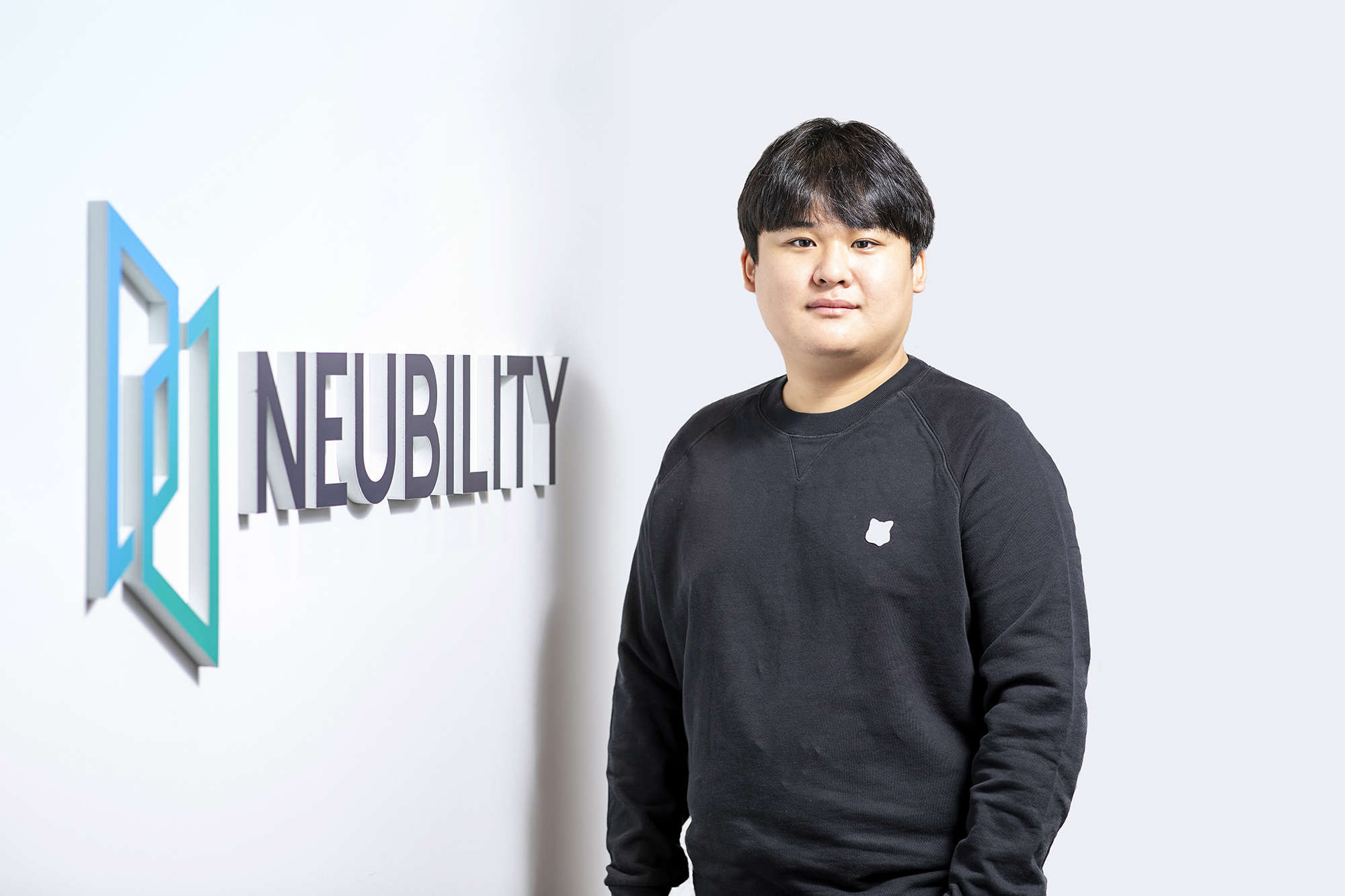- Innovating the Delivery Market with Self-Driving Robots October 29, 2021
-
Sangmin Lee (Astronomy, Entering Class of ’16) CEO of Neubility and an Innovator Who Pioneers Robot Delivery
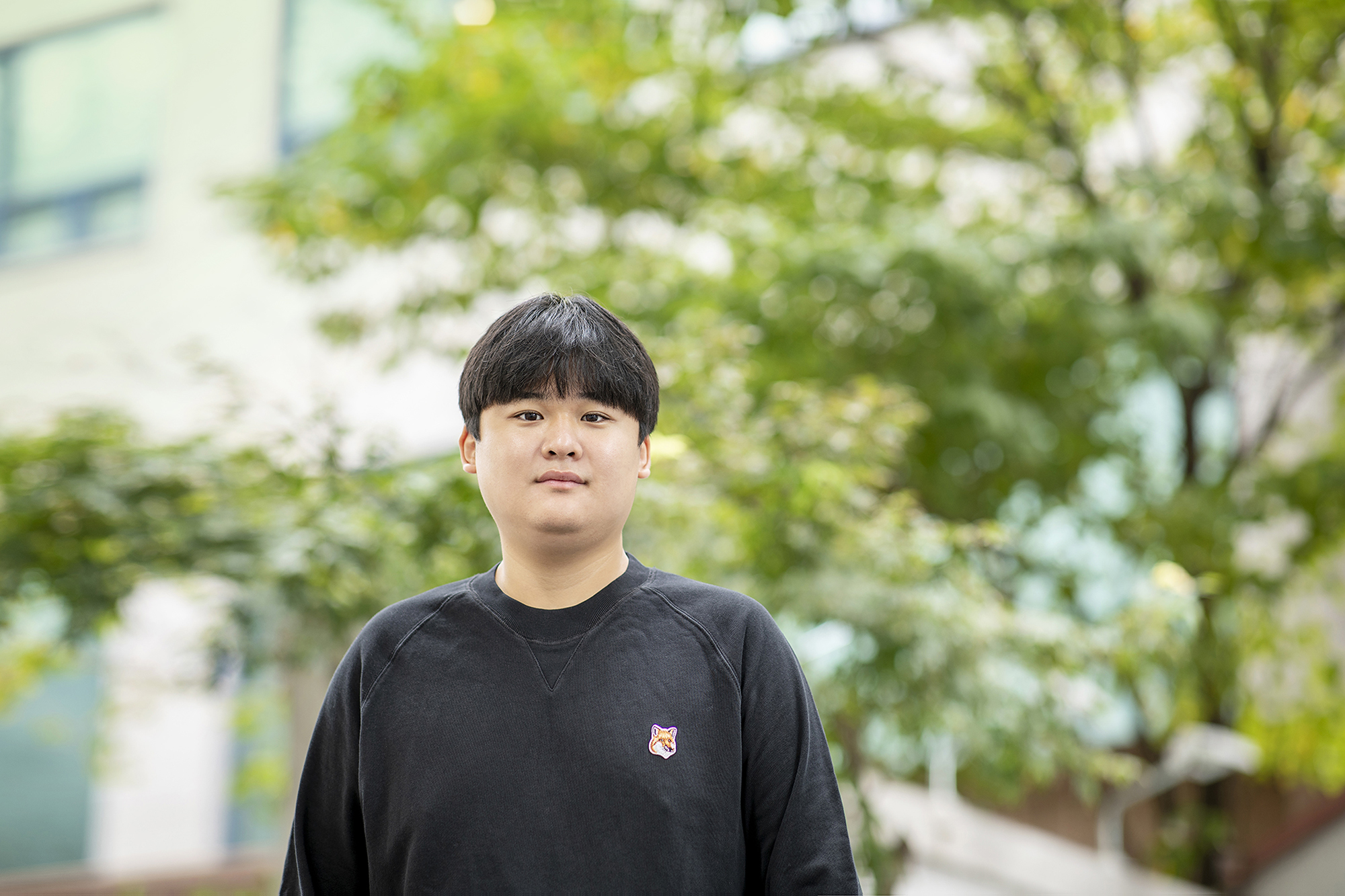
A Rising Star in the Startup Industry
Establishing his first startup at 21, winning the grand prize in the aerospace category at a NASA-sponsored competition, being nominated as one of the "Forbes 30 Under 30 Asia 2021," pursuing driving automation, and currently working as a CEO of a startup that attracted billions of won in investment from Kakao Investment; Sangmin Lee, a student at Yonsei University with his brilliant career records, is a rising star in the Korean startup industry. The startup company "Neubility," which Sangmin founded, is considered the most advanced in commercialization with self-driving robot technology in South Korea. Within the idea of "human delivery service" that most people did not pose doubts, Sangmin found a blooming "future market" as he challenged himself to the business for robot deliveries, which he predicts to be a reality sooner or later. Fast forward to now, the groundbreaking innovation of the delivery market by the new mobility of robots is gradually becoming a reality, with the idea of robot delivery emerging as perhaps the easiest but most innovative solution to avoid the problems of current delivery services, such as burdensome delivery fees for both self-employed and consumers, and the safety hazards from dangerous motorcycle deliveries.
Fascinated by the Cosmos
Sangmin Lee was initially a student with an interest in the field of aerospace engineering rather than robotics. Impressed by the launch of the Naro Rocket in 2013, it was where his interest in the cosmos began, as he aspired to become a rocket engineer making space projectiles. Sangmin would sometimes have philosophical concerns about his existence in this vast universe, and his interests in the field led him to read related books and articles daily. The cosmos was a new and fascinating world for him, and he eventually decided to explore this world even more.
In his high school years, Sangmin gathered friends of similar interests to form the "Korean Youth Society for Aerospace," serving as the founding chairman. Around 300 youths gathered to hold an academic conference once a year, as the association selects research topics and supports associated research with funds from membership fees. It was at this conference that he came up with the idea of making a spiral toilet using the centrifuge principle when he happened to learn about the problem of frequent breakdowns in the International Space Station's bathrooms at the time, leading him to find the team members who could join him to materialize his solution. The following idea eventually led him to win an award at the NASA-sponsored contest. Sangmin's active activities at the association also attracted the attention of NASA's education bureau, which allowed him to have the valuable opportunity to communicate with astronauts in real-time. Though he started from a mere desire to look for fun things to do, good chances came as time passed; valuable experiences accompanied his interest in the field. It later naturally led to admission to Yonsei University's Department of Astronomy.
From Rocket to Robot: Rocket Club was the Turning Point
With the dream of becoming an aerospace engineer, the experience Sangmin sought was building a rocket himself: an experience that was unavailable on campus. Determined to fulfill his desire, Sangmin once again stepped forward as he formed a "rocket club" that works to create small rockets and recruited enthusiastic members. Though one might think that professional engineering knowledge is a mandatory prerequisite, he opened the door wide for everyone.
"We received applications from anyone interested in what the club strives to achieve. Just because we are building a rocket does not mean that we only need students who major in electronics or mechanical engineering. We needed various talents, such as students from design departments who could come up with rocket designs and students from the business major who could take care of the administrative issues. The synergy of "convergence" was essential for our work."
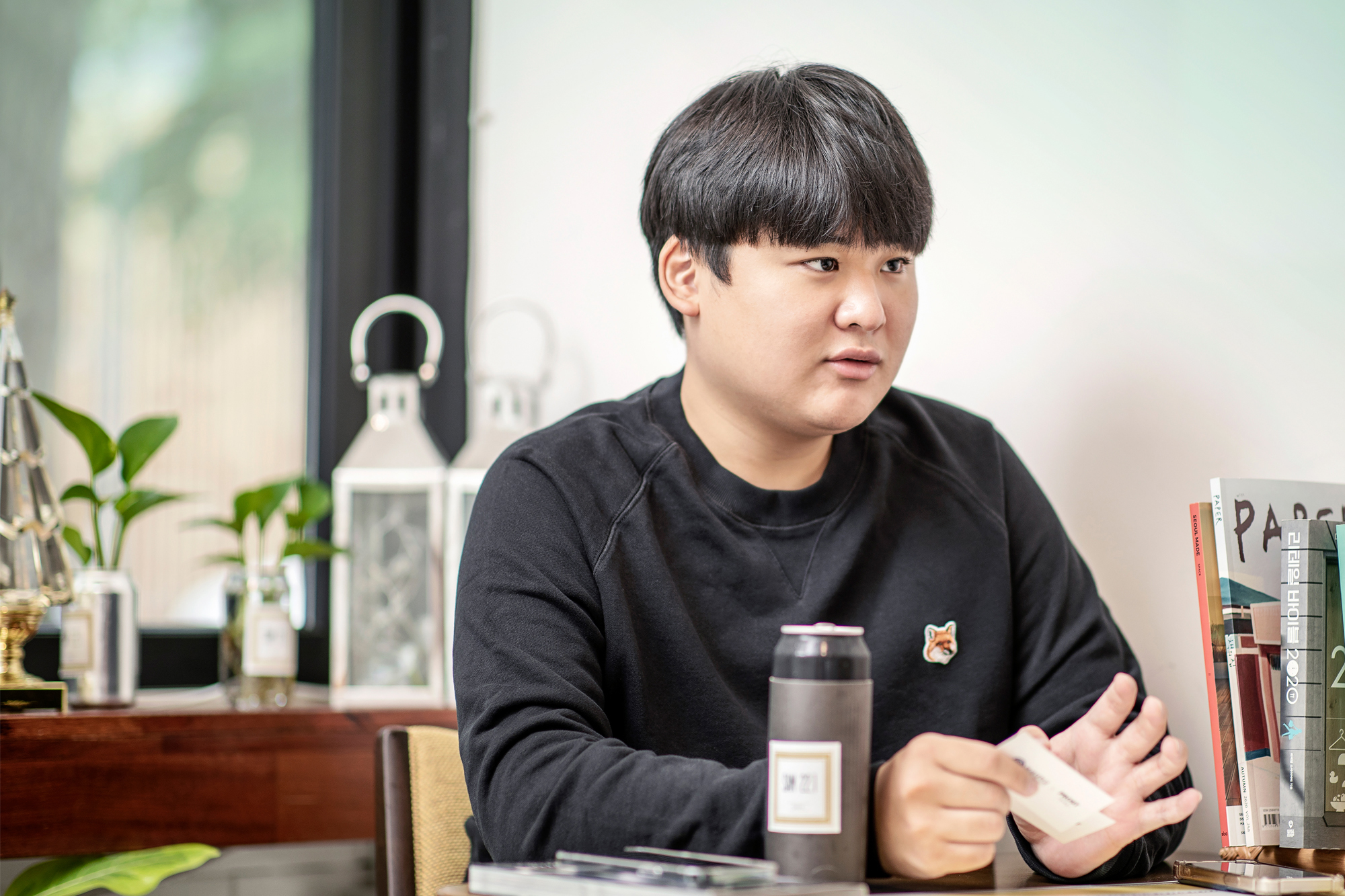
However, regardless of how small it might be, a rocket required a budget of at least 30 million won to develop. At this time, the club found out about the Yoonmin Foundation under the CEO Son Joo-eun of Megastudy, South Korea's online education service giant. Recognizing the club's potential, the foundation supported 50 million won in funding and office space to encourage their effort towards their dream. While others might view it as an "investment," Sangmin perceived the foundation's support as "placing trust." Thanks to the foundation's help, the club has expanded its knowledge and experience with members challenging themselves to various things as a team. And before they knew it, the funding from the foundation was quickly running out, leading the club to engage in projects to outsource a wide range of technology for large companies. They were willing to do anything as long as it seemed fun and enjoyable as a club. Using the knowledge and experiences accumulated so far, the rocket club developed driving automation technology for forklifts and even participated in NASA's space construction project to build 3D printers for construction. The club gained confidence as working-level officials have recognized it for its self-driving technology developed, and the determination to establish a startup business gained momentum. The first thing Sangmin did was find investors, as he sent e-mails to various venture investment companies to request funding.
"We summarized our experiences in a document for the venture investment companies, but the only company we received a reply from was "FuturePlay." We received feedback: "we are currently thinking about a program with "Mando," a self-driving technology company, and your club seems to have a technological potential. Think out what the club has been doing and what it can do with self-driving technology in the future." But then, we only had three days to come up with the idea before the proposal presentation. During the three intensive nights of preparation, what came to mind was the self-driving robot I saw in the Sangam-dong area, with which I was able to attract investment."
The venture investment company and Mando later recounted that they gave high scores because they thought Sangmin's team would not pass. Still, perhaps the decision to approve was not just for investment in business items and technology but also in the potentials of aspiring students with sparkling passion.
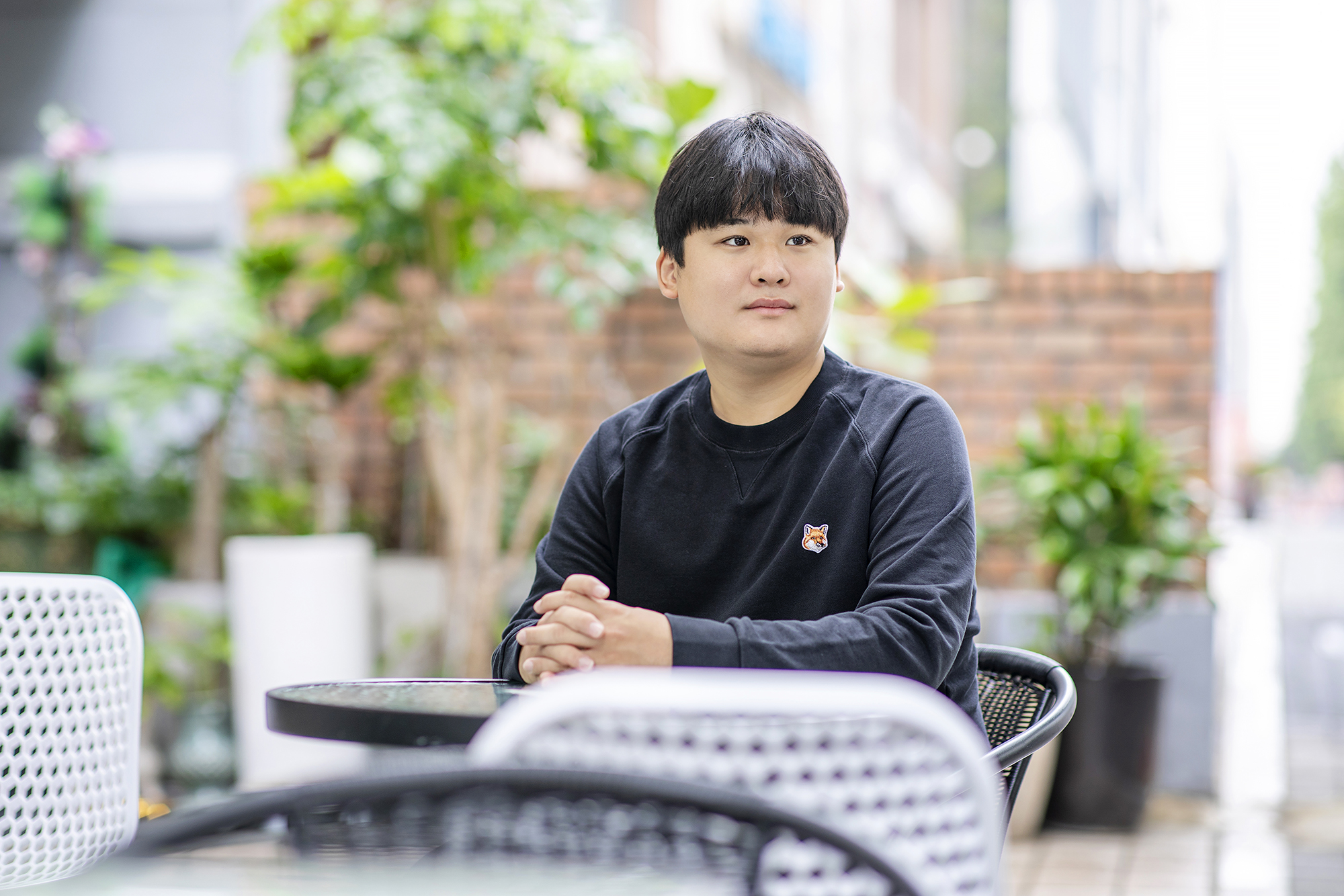
Discovering the Potential of Robot Delivery Market
So far, that was the journey of Sangmin, who founded and runs the self-driving delivery robot startup "Neubility." At a glance, the current establishment might seem distanced from the field of aerospace engineering, but taking a deeper look into it, he says that there is indeed a connection lying beneath.
"Rocket science is a complicated field to study, for a rocket is a concentration of various state of the art technologies available. That bought us to think, 'be it a smartphone, a car, or a robot, is there something we really cannot develop?' Then by chance, I visited the self-driving specialized zone in Sangam-dong, and there were some companies that had delivery robots. I thought that we could do better. Using satellite imaging technology that we have accumulated from building ultra-small satellites, a friend who controls a rocket can control a robot- all the capabilities we had built up in developing rockets could be applied to a new field."
Additionally, for Sangmin, who enjoyed taking an insight into how the world and its trend were changing, he could see a market with potential. It was the delivery market. So far, excessive fees for delivery services have been a burden to both the self-employed and the consumers. Here, he saw the future of the "autonomous driving delivery robot" and its service market, replacing the traditional process with robots, not humans.
"There are many things that we can't see from the current perspective, but looking at the future, I think delivery will be divided into two categories. One is human delivery, and the other is robot delivery. Human delivery will soon be limited to high-priced premium services, while robot delivery will be the major service provider of fast and cheap delivery services—currently, convenience stores and small businesses cannot provide delivery services due to high delivery costs. For delivery to be cheaper, labor costs must be replaced, and robots can be the answer. When it happens, the size of the delivery market can be much bigger than it is now."
The "Neubie" is a self-driving delivery robot developed by Neubility and is in the process of commercialization. The Neubie's purpose is clear. It is a robot that can deliver quickly and cheaply. To that end, the robot itself must be at a low price, which is only possible with a high level of technical skill in development.
"Most self-driving robots use the "LiDAR" to recognize their location. It's very precise. But it's expensive enough to reach tens of millions of won. Inevitably, the price of a robot incorporating the following technology will also increase exponentially. On the other hand, we developed self-driving technology using camera-based positioning technology to lower robot prices. When compared to a robot that incorporates 3D LiDAR technology, our Neubie is evaluated to show a similar level of precision."
Neubie, which have recently started operating in Songdo, Incheon after being tested, will be deployed to downtown areas such as Gangnam in Seoul. It is the first time that delivery robots have been commercialized in the outdoor pedestrian zone in the city center. Additionally, strict regulations will not be applied for two years as they have been approved for exceptional cases of a demonstration by the Ministry of Science and ICT. With a firm conviction in the stable operation of its service, the company strives to achieve perfection for Neubie, not only in terms of technology but also in terms of service experience.
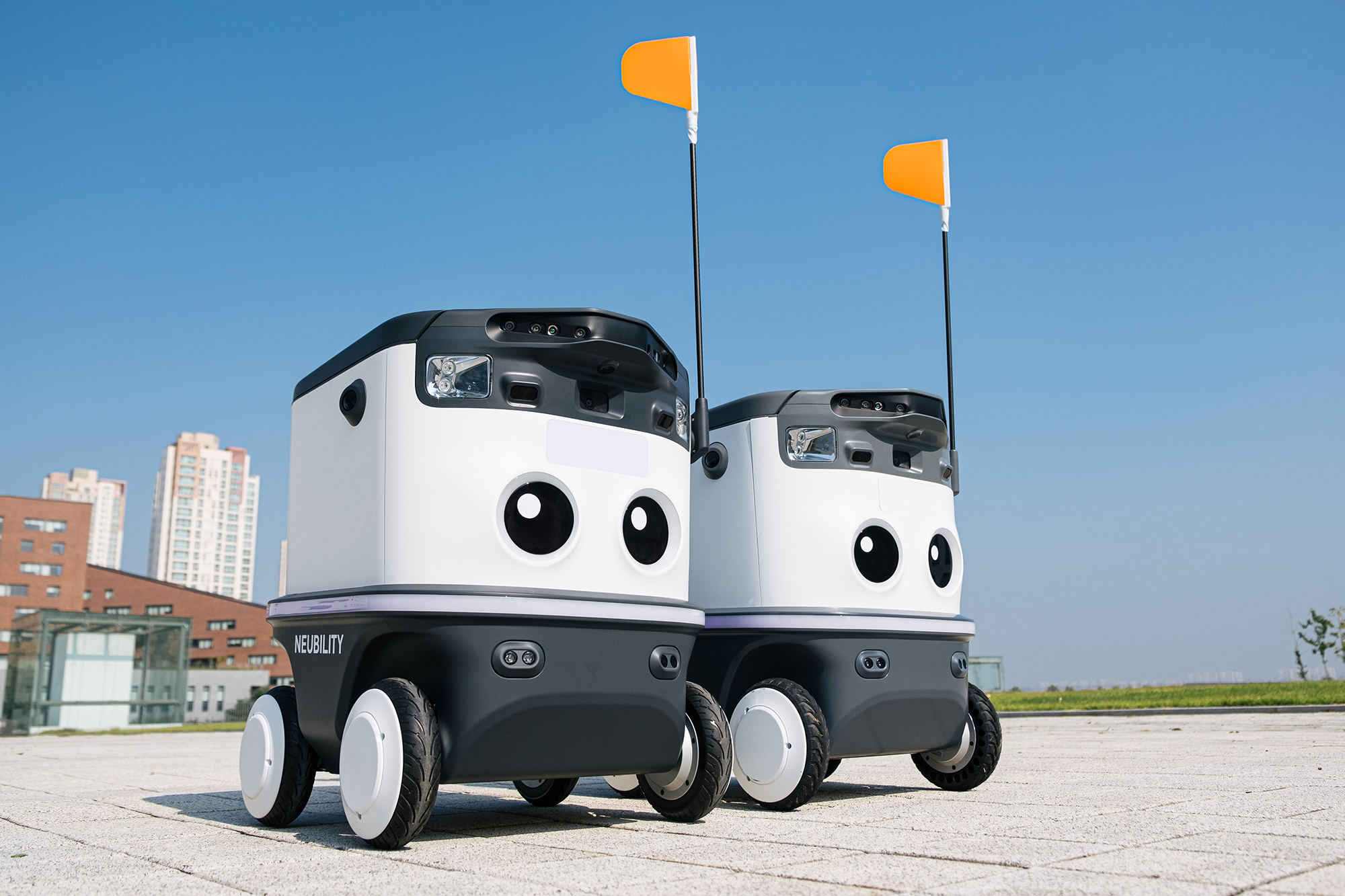
(Source: Neubility)
Fail Fast to Go Far
From a university rocket club to a promising startup, Sangmin Lee has quickly evolved from being a developer to an entrepreneur, which seems to be a perfect role for him who has excellent ability to draw big pictures. As a startup entrepreneur, Sangmin always emphasizes to "fail fast."
"I would tell my employees, "let's fail quickly and improve quickly." In other words, let's not make a Lamborghini, but make a Chevrolet Spark. Both Spark and Lamborghini can move. If we need the technology to move, what we should do is to make a Spark and improve it. Startups need everything to be fast. If a large company is a fighter jet, a startup is a light aircraft. Light aircraft would take off first in a typical market, followed by fighter jets from large companies. As such, light aircraft should go as far as possible before being caught up by fighter jets. During its long journey, it should transform itself into a fighter jet by getting necessary investments and securing talents. It takes more than five years to make the perfect car, but we just have to make it work first, and then we can make it work faster through quick failures."
If one could not fail fast, there would later be an obsession to be perfect, and if a startup slows down, it would eventually face its limitation. Sangmin strives to make products, services, and a company that become more and more complete rather than being perfect, reflecting the corporate culture and differentiation of Neubility deeply rooted in the minds of every member who has been working together for a long time.
There are many alumni of Yonsei University at Neubility, from the first roommates in the Yonsei International Campus dormitory to fellow colleagues and seniors in the rocket club. The presence of good friends still standing by Sangmin serves as a huge motivation for him.
"I'm grateful for Yonsei because it allowed me to meet good people. In addition to my colleagues and friends who have been with me since the early days of the rocket club, I am very encouraged by the fact that recently many seniors have also joined to work with me in planning and strategy. I think the growth of our company is up to every one of its members."
He Who Wants to Change the World Can Be a Good Entrepreneur
Sangmin Lee, as a CEO, has a clear idea about the identity of Neubility as a company: a delivery agency, not a company that develops self-driving technology.
"Ten years ago, the market for food delivery services was limited to that of Chinese restaurants that were the only restaurants to hire delivery men. Lots of things have changed with the emergence of delivery service providers. I hope that our company will become a company that innovates the delivery market, instead of just being a company with the best technology. It is my dream to make Neubility a company that pioneers the era in which deliveries through robots become a norm."
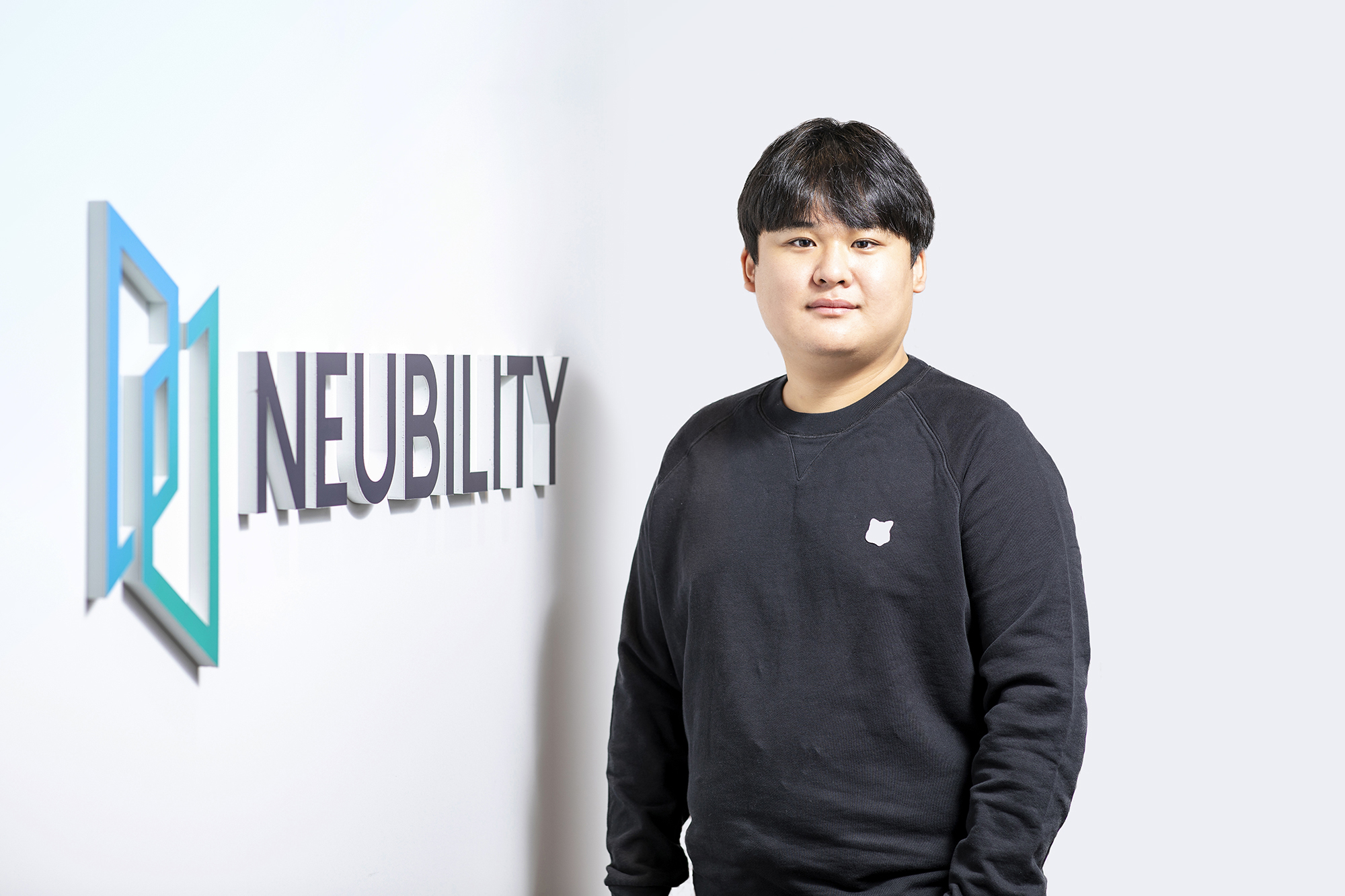
In this heyday of startups, countless youth dream of establishing their startups, and many are actually challenging themselves as they come across such success stories. However, Sangmin Lee, the very epitome of a student startup success story, expresses concern about the idea of starting a business "for the experience."
"The message "challenge yourself to build a startup" can be seen everywhere, and opportunities are open, but ironically, I don't think it should be considered a path for everyone. It's tough to withstand all the pressure and stress as an entrepreneur, and there are many cases in which the experience of running a startup is regarded as just one additional line in the resume to get a job, which is a pity. If you cannot push yourself to the limit, nothing can be achieved. I believe that those who are serious about changing the world can be good entrepreneurs in the future."
Sangmin Lee, who has been walking a different path from others, the result of which led him to be who he is today, says that he could not have imagined what Neubility would have looked like today if asked the question three years ago. And that is also why he cannot visualize the company's future years from now; he is merely looking at the world and the market with the "futuristic perspective" based on the present. Sangmin believes that the future is a creation from the gift, as he already knows that the expansion of the present value will soon become the future that awaits him.
show mobile menu
mobile menu

